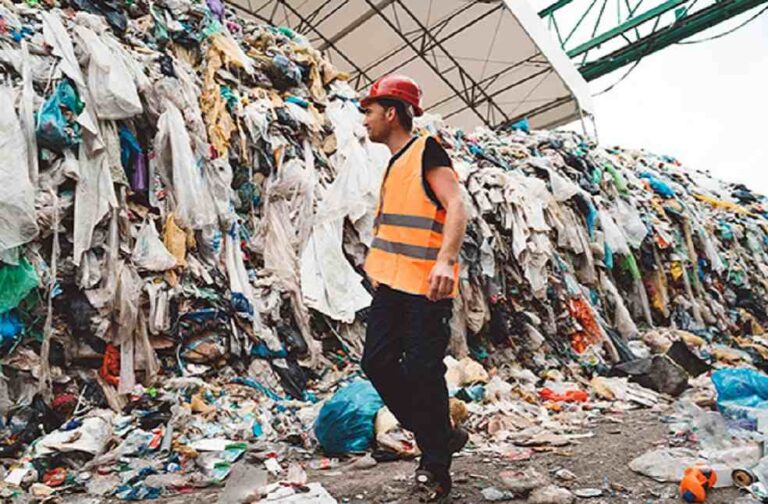The call for a sustainable future resounds louder than ever from the heart of Bangladesh. With ambitions that extend beyond its textile prowess to champion global recycling, Bangladesh envisages an eco-conscious future.
Leading this green charge is the Bangladesh Garment Manufacturers and Exporters Association (BGMEA). “We aspire to establish ourselves as a global recycling hub and further contribute to our economy while positively impacting our climate,” expressed Faruque Hassan, BGMEA’s president, during the unveiling of the “SWITCH to Circular Economy Value Chains (SWITCH2CE)” program.
With its status as the world’s second-largest apparel exporter, Bangladesh confronts an immense garment waste challenge. Hosting nearly 4.2 million individuals employed in the garment sector and another 5 million in the related textile field, Bangladesh swiftly acknowledges the imperative of melding green initiatives, addressing both environmental and economic stability.

The SWITCH2CE event, a collaborative venture by the United Nations Industrial Development Organization (UNIDO) and the Bangladesh Ministry of Commerce, surfaces at this critical moment. Its foundational pillars encompass nurturing collaboration, elucidating strategies for a circular economy, and strengthening the nexus between policy framework, academia, and industry torchbearers.
Hassan, resonating deeply with global environmental urgency, spotlighted the centrality of circularity for the textile sector’s trajectory. Early adopters of a circular model will determine the industry’s leaders, he asserted.
The evolutionary arc of the fashion and apparel domain now aligns with sustainable paradigms. Hassan pinpointed the surging consumer preference for transparency, ethical grounding, and circular principles in their acquisitions, thus solidifying the industry’s trajectory toward sustainability.

Golam Dastagir Gazi, Bangladesh’s Textile and Jute minister, graced the forum where voices converged on the necessity of global collaboration, technological assimilation, and an adaptive policy environment, incorporating a rejuvenated tax ethos.
Articulating the European Union’s vision, Dr. Bernd Spanier from the EU Delegation to Bangladesh revealed, “By 2030 all textile products imported in the EU market have to be recycled, and made of second-hand fibers.” This declaration underscored the quintessential role of a dynamic private sector.
The road to a circular economy presents myriad challenges. Yet, as accentuated by Dr. M Masrur Reaz of Policy Exchange Bangladesh, with harmonized policy support, synergy, technology transfer, and green financing mechanisms, Bangladesh’s vision remains attainable.

Echoing this blueprint, Tapan Kanti Ghosh, senior secretary of the Ministry of Commerce, emphasized the criticality of technical acumen and external investments in this domain.
The forum was a mosaic of perspectives, from UNIDO dignitaries to local and global thought leaders, all converging towards a singular aim – a circular, resilient Bangladesh.
As we navigate an era of accelerated consumerism, Bangladesh’s pivot towards a circular ethos emerges as a beacon of global sustainable intent. This textile titan is poised for change, and the world awaits with bated breath.
LATEST NEWS | Bangladesh RMG Sector Embraces Recycled Fabrics: A Leap Towards Sustainable



